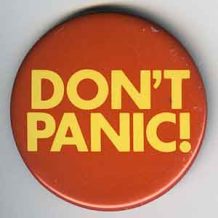Anxiety Disorder Treatment Options

There are many options for anxiety disorder treatment available today. Some of them can be done at home without the help of medical professionals, and others require doctor visits and prescriptions. For most people with anxiety disorders, the most effective treatment involves combining therapies. While discovering what works best may take some time and experimentation, it is well worth it to get relief from anxiety disorders.
Helping yourself
Feeling anxious doesn’t always mean it’s an anxiety disorder. For this reason, many people who feel anxious don’t realize they have an anxiety disorder. Most people suffering from anxiety today will try self-help methods for treating their anxiety before turning to a doctor for help. Self-help methods involve lifestyle changes and thought analysis .
.
Living a healthy lifestyle is imperative for total well-being, including mental well-being. Getting adequate rest, exercising regularly and a eating a balanced diet can all go a long way towards reducing stress and anxiety. Also, alcohol, caffeine and nicotine should be avoided, as they tend to make anxiety worse. Lastly, practicing relaxation techniques, such as meditation, controlled breathing and progressive muscle relaxation, will promote relaxation of mind and body.
Anxiety can also be fought through thought analysis. Many people find it helpful to write down their worries and then consider and write down things that can be done to minimize them. For example, if someone is anxious about an upcoming meeting at work, they might brainstorm for ideas of what they want to contribute to the meeting. With a plan in place, feelings of anxiety and worry are replaced with more positive feelings of preparedness and productiveness. It is also important to acknowledge that uncertainty and unpredictability are a part of life. Because anxiety is usually caused by worry about the outcome of a future event, accepting a certain amount of unpredictability can make it easier to focus on today and not what may or may not happen in the future.
See a professional
When the aforementioned self-help techniques don’t work, it may be time to visit with a health professional about the possibility of an anxiety disorder. A doctor can rule out any medical causes for the physical anxiety symptoms, such as hypoglycemia, asthma or a thyroid problem. He or she can also discuss what else might be causing the excessive anxiety, like medications or supplements.
If a medical doctor is unable to pinpoint a cause for the anxiety, it is time for a visit to a therapist. Therapists are trained to talk through fears and worries, which can help the patient deal more effectively with them. Beyond this, anxiety disorder treatment usually utilizes a combination of 5 to 20 weekly sessions of behavioral therapy and medication.
Cognitive-behavioral therapy and exposure therapy are the most commonly used therapies for treating anxiety disorders. Cognitive-behavioral therapy helps the patient identify negative thought patterns and irrational beliefs and then find ways to challenge them so that they are less anxiety-provoking. Exposure therapy encourages the patient to confront their fears in an environment that is safe and controlled allowing for a greater sense of control over them. By repeatedly facing fears without negative repercussions, the fear and anxiety is gradually diminished.
Many times, therapy alone is used successfully as anxiety disorder treatment. When it isn’t, the doctor may recommend medication. The most commonly prescribed medications are benzodiazepines and SSRI antidepressants. Because many of these drugs have negative side effects and can be addictive, it is important to start slowly and only after doing adequate research to weigh the pros and cons of each drug.
https://www.youtube.com/watch?v=FAZPJigLK-s





